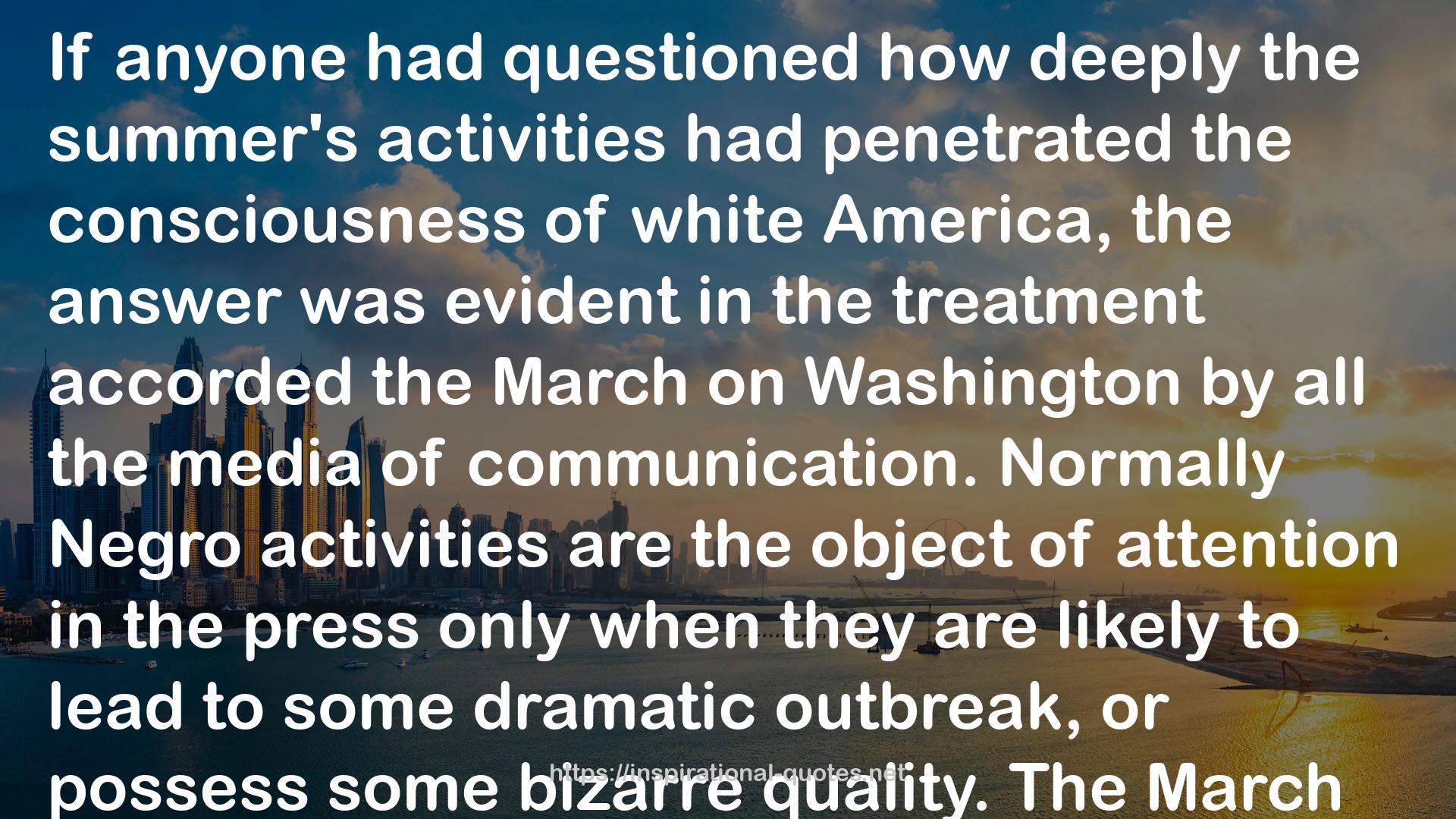" If anyone had questioned how deeply the summer's activities had penetrated the consciousness of white America, the answer was evident in the treatment accorded the March on Washington by all the media of communication. Normally Negro activities are the object of attention in the press only when they are likely to lead to some dramatic outbreak, or possess some bizarre quality. The March was the first organized Negro operation which was accorded respect and coverage commensurate with its importance. The millions who viewed it on television were seeing an event historic not only because of the subject, but because it was being brought into their homes.
Millions of white Americans, for the first time, had a clear, long look at Negroes engaged in a serious occupation. For the first time millions listened to the informed and thoughtful words of Negro spokesmen, from all walks of life. The stereotype of the Negro suffered a heavy blow. This was evident in some of the comment, which reflected surprise at the dignity, the organization and even the wearing apparel and friendly spirit of the participants. If the press had expected something akin to a minstrel show, or a brawl, or a comic display of odd clothes and bad manners, they were disappointed. A great deal has been said about a dialogue between Negro and white. Genuinely to achieve it requires that all the media of communication open their channels wide as they did on that radiant August day.
As television beamed the image of this extraordinary gathering across the border oceans, everyone who believed in man's capacity to better himself had a moment of inspiration and confidence in the future of the human race. And every dedicated American could be proud that a dynamic experience of democracy in his nation's capital had been made visible to the world. "
― Martin Luther King Jr. , Why We Can't Wait
